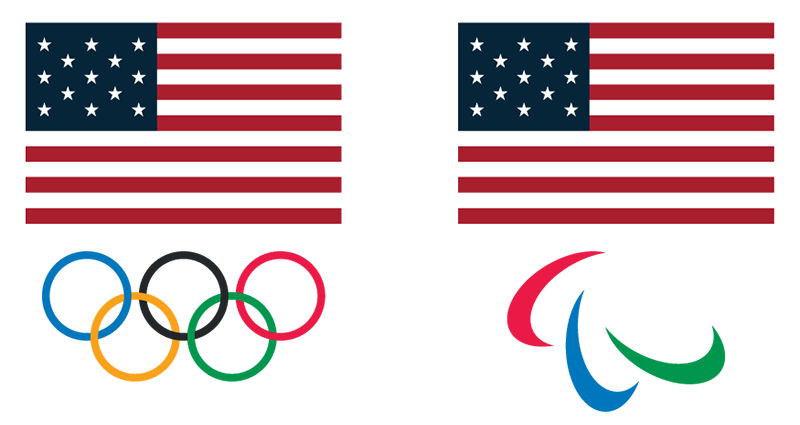The United States Olympic & Paralympic Committee in conjunction with the U.S. Anti-Doping Agency issued a joint statement last week calling for reform of the World Anti-Doping Agency.
The organizations identified that it is a critical time for WADA to act on its failures and to improve as an organization as they seek clean athletes in sport. They have highlighted four main areas for WADA improvement: Athlete Voice, Independence, Transparency, and Accountability.
They are asking that athletes are involved in the reform process and for athlete inclusion on both the WADA Executive Committee and the WADA Foundation Board. An increased inclusion of athletes will help draft rules that in the past have “far too often unfairly punished athletes.”
The groups have called-out WADA for conflict of interests in regard to membership. They are seeking that members of the agency are based on merit and that no sport officials are allowed to serve on the Executive Committee. The Foundation Board needs to have a balance of representatives from different backgrounds. Governmental regulation of WADA needs to be eliminated.
They are asking that decisions made by both the Executive Committee and Foundation Board are publicly disclosed and that votes on decisions are done publicly. There should be a separation of power between the legislative, judicial, and executive functions of WADA.
In a number of recent high profile cases, WADA has levied stricter penalties only to have those penalties struck down by courts. The upcoming Tokyo Olympics will see Russia competing as ROC as a result of a WADA-issued ban after a lengthy doping scandal. The initial four year ban issued by WADA in December 2019 was reduced to two years in December 2020 by CAS. In May, Chinese Olympic champion Sun Yang will face his latest hearing with the CAS in regard to his September 2018 altercation with anti-doping officials. In 2019 WADA appealed to CAS a ruling by FINA that cleared Yang based on an independent anti-doping panel ruling, and though the CAS sided with WADA, a Swiss appeals court required the case to be reheard because of racist tweets from the chairman of the original hearing committee.
The statement comes as the Tokyo Olympics are scheduled to begin in three and a half months.
Full Statement Below:
The United States Olympic & Paralympic Committee Athletes’ Advisory Council and United States Anti-Doping Agency stand united in collectively calling for meaningful reform at the World Anti-Doping Agency (WADA).
The reform proposals – submitted separately to WADA by our respective groups – are intended to make it clear that WADA must change and become a strong, independent anti-doping regulator and protector of clean athlete’s rights. All athletes have been promised the opportunity for a fair, safe, and level-playing field and WADA must transform itself immediately to deliver on this agreement.
As WADA has acknowledged the need to reform and now embarks on a governance reform consultation with stakeholders, athletes and NADOs call for more independence, transparency, and accountability at WADA. The only way WADA can achieve these objectives is to eliminate conflict of interest and truly embrace athlete input. As result we are calling for changes in the following areas:
Athlete Voice
- To restore faith in the global anti-doping system, athletes must be given a true voice in the reform process.
- Ongoing athlete engagement is crucial to evolve a ruleset that has far too often unfairly punished athletes.
Independence
- WADA must create a truly independent governance structure free of conflicts of interest.
- Members of the WADA Executive Committee must be assigned on merit and representatives must be completely independent. Accordingly, no sport official should be permitted to serve on the WADA Executive Committee. The Executive Committee must also include independent athletes and be empowered to discuss change impacting them and their colleagues.
- The Foundation Board should consist of balanced representatives from government, sport, NADOs, athletes, and independent experts.
Transparency
- All Executive Committee and Foundation Board decisions must be publicly disclosed.
- Stakeholder compliance decisions must be made by the independent WADA Executive Committee and done in a public manner with votes recorded and reported.
Accountability
- WADA cannot be regulated by the sporting movement or any individual government.
- Athletes must receive independent and fair apportionment around all key WADA decision-making tables.
- There must be an embedded separation of power between the legislative, executive, and judicial functions of WADA, and the anti-doping system to ensure an effective and fair justice system where conflicts of interest play no part in decision-making processes.
Now is a critical time for WADA to respond to its failures by committing to a stronger and more independent WADA that builds credibility with athletes around the world. Refusal to implement these simple and unprejudiced changes will continue to render WADA inept at fulfilling its purpose and mission for clean athletes and the integrity of sport.
Many individual athletes and athlete groups have also submitted reform proposals as athletes worldwide rally for change. Without athletes, WADA would cease to exist. Incorporating athlete feedback is long overdue, but it’s not too late. WADA must act now.
Signed,
USOPC Athletes’ Advisory Council
U.S. Anti-Doping Agency
